Turkish expert Recep Erçin describes in interview with UWI consequences and ways out.
Turkish expert Recep Erçin describes in interview with UWI consequences and ways out.
On November 21, The United States announced applying sanctions against the Russian Gazprombank, an entity until today excepted from Washington’s pressure.
Why is the Gazprombank important? What role does it play it the Turkish-Russian relations? And even further than that, for European countries? And how can the affected countries react to it. We asked these questions to Recep Erçin.
Erçin is news coordinator of the Turkish daily newspaper Dunya, one of the leading outlets in the media regarding economy.
First of all, how do you evaluate this sanction?
Everybody was waiting for the relaxation of America’s sanctions against Russia with the Trump administration, the continuation of relations between the two countries on a more reasonable basis during the Trump era, and the end of the Ukraine War. In the middle of that, the Biden administration scored a very big goal. And this goal was scored not only against Russia, but also against Trump and America’s allies.
For instance, Türkiye is a NATO member and under the umbrella of the alliance and the US. The country gets gas from Russia, and it has no other choice. It cannot meet its demand with American LNG.
Damage to payments
As you know, Türkiye’s energy security was provided by the Turkish Stream. Here, transactions are usually carried out through Gazprombank. Russia provides and receives energy payments from there.
With Turkstream, the imposition of these sanctions affects a wide range of countries in a wide geography. More than other sanctions.
What were the other sanctions more? Confiscation of Russian money, prohibition to sell military equipment to Russia or to send some industrial materials that would be useful for military technology. And stopping sending American goods in certain categories. Sanctions have already been imposed on certain Russian banks within certain limits.
But the direct implementation of this sanction against the Gazprombank is something like Türkiye’s Halk Bank case. It targets directly the public. Of course, we can say that America, or rather the Biden Administration has increased its hand.
Even Russian companies based in Türkiye are having difficulty transferring capital from Russia to their own companies. Also, they have problems in transferring dividends from Türkiye to Russia. In fact, many of the employees of Russian companies in Türkiye are asking how we will be paid our salaries this month.
Because there is an ongoing trade with Turkish Lira and Ruble. That continues. But here, we are talking about huge volumes and also exchange rate differences. Unfortunately, there is no mechanism fully established there.
Russia needs to be braver in pursuing trade in national currency
I told this to former Central Bank Governor Hafize Gaye Erkan in our one-on-one meeting: ‘We need to solve this issue with Russia, we need to expand SWAP’, I said. She responded: ‘Yes, I agree. I even said this to the Chairman of the Central Bank of Russia. You open an account of 50 billion dollars with us, we are already importing that much from you. In this framework, let’s find something with an open account, let’s find a method. After all, in a way that will be protected from their sanctions.’
However, the Russian side is not very keen on this. Although Russia says that we should trade in national currencies, it is not as aggressive as China in this regard. Not as bold as China. To a degree, their western leaning continues. After all, a country needs to prioritize trade in local currency.
Putin says that, Erdoğan says that. But the bureaucratic mechanism and the financial mechanisms below need to keep up with it. Banks also need to keep up. Unfortunately, in economies that have been integrated into the Western or American system for a long time, this is not an easy transformation. We see this in Türkiye. For example, which bank in Türkiye will trade with Russia?
It started to be done through a public bank. The U.S. said, ‘I’ll sanction it.’ Sanctions began to be imposed on companies. For example, it was almost feared and retreated. Now there are different methods again.
Turkish energy minister “shouldn’t’ ask for waiver – waiver benefits the US”
However, although this energy payment is made through Gazprom Bank, I think it was an unfortunate statement that the Turkish Minister of Energy came out and said in the previous days: ‘This will affect us, we will ask for a waiver from the United States’.
I think instead of asking for an exemption from America, he should have said, “If America is doing this, then we will go our own way without America.” Because Russia is our neighbor. In other words, the US prevents you from trading with your neighbor. A saying in Turkish goes that a neighbor needs even neighbor’s ashes.
America will walk away tomorrow and or day after. With Trump, they get caught up in their own business. But here we are left alone with Russia. Therefore, Türkiye needs to adopt this policy and mentality soon.
Therefore, if the U.S. provides an exemption, it will be in favor of the U.S. But if the U.S. doesn’t provide exemptions, the two countries will find a different way to pay, and I think they already have. There’s already the basis for it.
Bilateral banks outside the Western system
How can a solution be found?
A bank is established on the Turkish side. A bank is established on the Russian side. Public banks on both sides. Transactions work from here. Transactions that do not through the dollar.
That’s the critical thing. That’s why Russia is actually having a little bit of trouble here. They demand that all energy payments are done in foreign currency.
Trump and de-dolarization
Open accounts can be worked on energy payments, with exchange in national currencies. Also, we buy crude oil from and natural gas from Russia, but at the same time we sell diesel and refined oil. These things also appear in foreign trade data. A barter method can also be found in the management of this.
Now the world has to minimize the risk of the dollar. Look, with the victory of Trump, we saw that the dollar became very strong. With his administration, the dollar may strengthen even more.
A strengthening of the dollar means also an increase in the risk of the dollar. If a currency is strong, people who hold that currency may be strong and those who hold it as deposits may be strong, America may be strong. But this puts pressure on your economy, between your economies, between your own currency. In other words, since it puts pressure on the exchange rates, it also poses a risk on the parities. Therefore, the country needs to lean towards further de-dollarization of trade.
But Trump also says that this time he will impose sanctions on those who de-dollarize. He should say instead that he’s going to take a more flexible monetary stance, not a strong dollar. He should renounce imposing sanctions on people over dollars. But now the Biden administration has done the opposite. Let’s see if this will change with Trump
In other words, the establishment of a separate bank outside the dollar system and, of course, outside of Swift and so on, may be a solution here.
There is definitely a mechanism that does not go through Swift anyway. That is, between the payments of the two countries. Let me tell you this: Even in the data of the Turkish Statistical Institute, the oil trade is displayed as hidden data. The data is only at the general level. Hence, it is not visible how much oil we buy from which country and at what price.
As such, I don’t think this trade goes through SWIFT anyway. Along with the implementation of the sanctions against the Gazprombank, there is also the question of whether dollars should be paid or not. We need to get it done without dollars being paid. We may pay in Yuan, for instance. An open account may be set up. Transactions can be made in Ruble and TL. Maybe if there is a deficit on the Euro side, it can be done from there.
I think there are many methods. When we look at the dollar, let’s say the euro and the pound against the full foreign currency of alternative currencies, the reason why alternative currencies of countries come to the fore is entirely due to American sanctions and the fact that early capitalist, central capitalist countries use monetary instruments and financial architecture as a method of pressure on other countries, let’s say commercially or politically. Otherwise, China would not say ‘I am becoming de-dollarized’. Brazil wouldn’t say that. Russia doesn’t say that out of the blue.
We saw what happened to Russia. Russia’s money in European Banks was confiscated. So this is banditry. And you take that bandit money, you try to transfer it as a resource to the other country that is fighting against Russia.
If such blatant lawlessness comes to the fore, people and countries have the right to say: Let’s create a shield of self-protection against it in countries with a stronger economy. BRICS actually is a little bit about that.
People also saw this: the Bretton Woods system. It’s now the U.S. dollar. Let’s all use dollars, how nice. They saw that this was not the right method.
It’s not like we’re all going to use the renminbi tomorrow, we’re not going to use the ruble. Maybe all those countries will have a currency like the IMF-SDR, a common currency, maybe international payments will come to the fore.
We will use TL between us in Türkiye, but it will be on the agenda to use SDR-like, IMF-like currency in international payments. This process is even fastening, considering crypto payment methods. Likewise, Russia has its own SPFS payment system, China has its own payment system. With the spread of these, the weight of alternative payment methods will increase in the world.
Chinese are also affected by these sanctions
Meanwhile, one effect of the sanction decision was UnionPay. In fact, it is a card issued by the Chinese. The Gazprombank was using it.
UnionPay is not a card, but a payment method. Just like our Troy. A payment method, a payment system. And the biggest competitor of American Express in the world. It was Mastercard’s biggest competitor in the world. You are also imposing a sanction on UnionPay here.
Of course, you affect the Chinese too. UnionPay was a method used by the Russians, especially during the sanctions, when they could not use Mastercard or American Express.
Russian tourists coming to Türkiye were also partially using this system.
Yes, they were using it. But for the Russians, with the advantage of some financial technologies in Türkiye, alternative payment methods have been activated. These need to become a little widespread. There are prepaid cards. There are digital cards. Payments can now be made through them.
In other words, there is no big problem in the tourism sector here.
I don’t think so. They already come with cash money or, they really use those cards well.
What about the consequences for energy?
From an energetic point of view: Türkiye invests a lot in renewable energy. Today, all the annual energy consumption of households in Türkiye is met from renewable energy.
But when we take into account the industry and take into account the weather conditions, let’s say renewable energy, it didn’t rain that year. Energy production in dams is declining. The wind was low that year. The wind power plant is falling. There was little sunlight. Good yields were not obtained. The efficiency transmitted from the solar power plant is decreasing.
What are you going to do? Imported coal or coal-fired power plants must be in operation. In case of emergency, the natural gas conversion plant must be activated. The nuclear power plant is now being built with Russia. Something important. Türkiye needs to have a nuclear power plant. The most important is geothermal power plants, which are both domestic and renewable. Türkiye needs to give more weight to this.
Now, when we add up all this mechanism, what is it used in all households? Natural gas is used. Türkiye extracts its own domestic natural gas. But is it enough yet? It’s not. It is at a level that will meet the needs of only one province.
What did we do with Russia during the Berat Albayrak period? We did the Turkish Stream project, to establish Türkiye’s energy security, which is not only Türkiye’s. The Hungarian Minister of Energy was in Türkiye recently. He said that they no longer had any intention of looking for an alternative corridor in energy. With TurkStream, they no longer have problems.
Now, America has found this measure to cut it. It hurts all these countries. Energy, after all, is an important, critical element in the survival of an entire industry in the country. Energy security is also the most important thing.
America says, ‘let me sell LNG to you’. What will happen if America sells LNG to the whole world? If you eliminate Russian resources, prices will rise. This is reflected in the pockets of households. And that’s how citizens should think about it.
So this decision hurts. Against this painful decision, countries and also Türkiye have until now reacted with soft messages. But I think that much harsher messages will follow. They’re waiting a little bit for Trump.







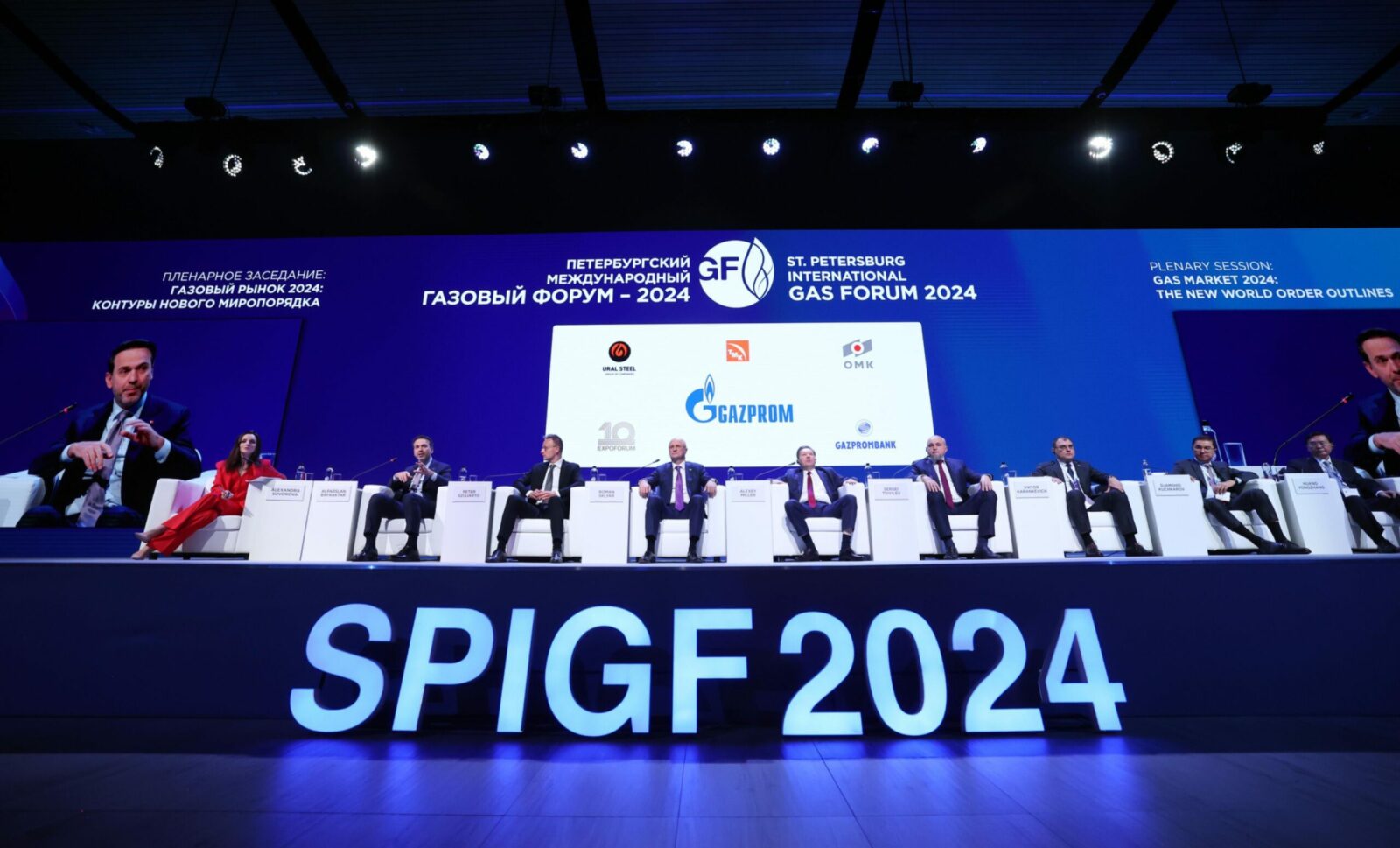
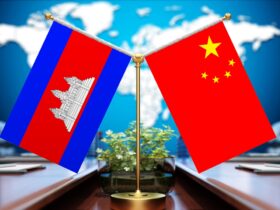

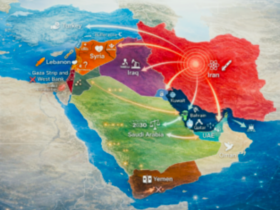
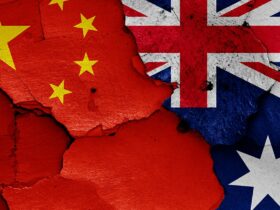

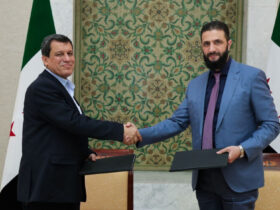
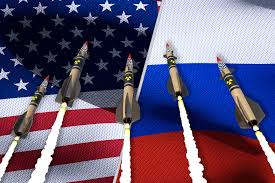
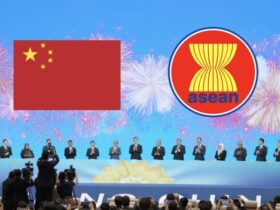

Leave a Reply